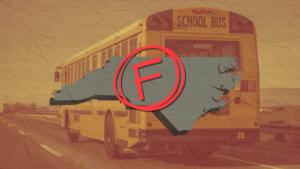A top state health administrator warned recently that North Carolina faces myriad expensive challenges that could mean more hunger, untreated illnesses, and financial strain for families across the state, according to NC Newsline.
At a meeting of the Child Fatality Task Force, Jonathan Kappler, chief of staff and deputy secretary for external affairs at the Department of Health and Human Services (DHHS), said changes to federal law combined with gaps in the state budget threaten both SNAP benefits and Medicaid expansion.
“There’s a lot happening all at once,” Kappler told the task force.
SNAP Costs Rising
SNAP currently helps about 1.4 million North Carolinians put food on the table. However, under the federal bill signed by President Trump in July, states will soon have to pick up a share of benefit costs based on their error rates. The federal government will continue to pay the full cost for states with error rates below 6%.
In 2024, North Carolina’s error rate was 10.21%. States with error rates over 10% will pay 15% of benefit costs, meaning the state could be on the hook for about $420 million.
The federal government will also reduce its share of administrative costs, shifting more responsibility to counties already stretched thin. County staff not only determine eligibility but will also have to enforce stricter work requirements for some SNAP recipients beginning next year and for Medicaid expansion enrollees starting in 2027.
Sen. Jim Burgin (R-Harnett) raised concerns from grocers who say SNAP reductions will also hit their bottom line. “I’ve met with the folks from Food Lion and some of the other grocery stores, and it’s a significant amount of money, and they’re concerned about it,” Burgin said, noting that SNAP sales make up 18% of revenue at some stores.
Medicaid Expansion in Jeopardy
More than 675,000 North Carolinians have enrolled in expanded Medicaid, but federal changes could unravel the program. The new law caps the provider tax the state uses to cover its share of expansion costs, while administrative expenses are expected to outpace available funding.
Kappler warned that this funding gap could eventually end Medicaid expansion altogether. Over the next decade, North Carolina could lose $50 billion in Medicaid funding, with rural hospitals hardest hit. Though the law set aside a $50 billion rural health fund, it would cover only about one-third of the projected losses.
Meanwhile, the stopgap budget passed by the state legislature in July fell $319 million short of what DHHS said was needed to maintain Medicaid at current levels. In response, DHHS announced Medicaid provider rate cuts beginning Oct. 1. Lawmakers say they hope to avoid the cuts, but no long-term solution has been secured.
Healthy Opportunities Pilot on the Chopping Block
The state’s budget fight has also jeopardized the Healthy Opportunities Pilot (HOP) — a Medicaid-funded program that has served more than 13,000 Western North Carolina residents by covering food, transportation, housing repairs, and other health-related needs.
In Canton, Katie Clubb said her grandchildren rely on SNAP, but rising grocery costs mean the benefits fall short of covering healthy meals. The USDA reported the average SNAP recipient got just $187.20 per month in 2024 — an amount that doesn’t even cover the low-cost meal plan for a child.
For Clubb, HOP meant weekly bags of produce and help with replacing a broken refrigerator and stove. For Chris and Robin Ulmer of Haywood County, it was the lifeline that allowed them to start a small barbecue business after losing work. When their truck broke down, HOP paid for repairs so they could get to medical appointments and continue working.
“The whole program was just good … it’s very beneficial and very much needed in every community,” Robin Ulmer said.
HOP was designed to save the state money by addressing health issues before they became emergencies. Jennifer Caldwell, a HOP spokesperson, said the program cut healthcare costs by about $1,000 per participant per year and brought in a two-to-one federal match, turning every state dollar into three. Without state funding in the new budget, the program was suspended on July 1 — despite federal approval to continue for five more years.
The ripple effects extend beyond families. Caldwell noted that 458 farms and growers across Western North Carolina relied on HOP customers. Without the program, both local agriculture and hospitals may feel the strain, as more people turn to the ER for care that could have been prevented.
What’s Next?
Budget negotiations are still ongoing, but advocates warn that without decisive action, families will be left scrambling. Caldwell urged residents to keep pressure on lawmakers, saying HOP “is on legislators’ radar, but we need to keep it on their radar.”
The stakes are clear: more hunger, fewer preventative services, and higher emergency room costs for everyone. As Kappler put it, unless the state finds a way to bridge the gaps, “there’s a lot happening all at once” — and it could leave North Carolinians with fewer options for both health and food security.
Read more from NC Newsline.





